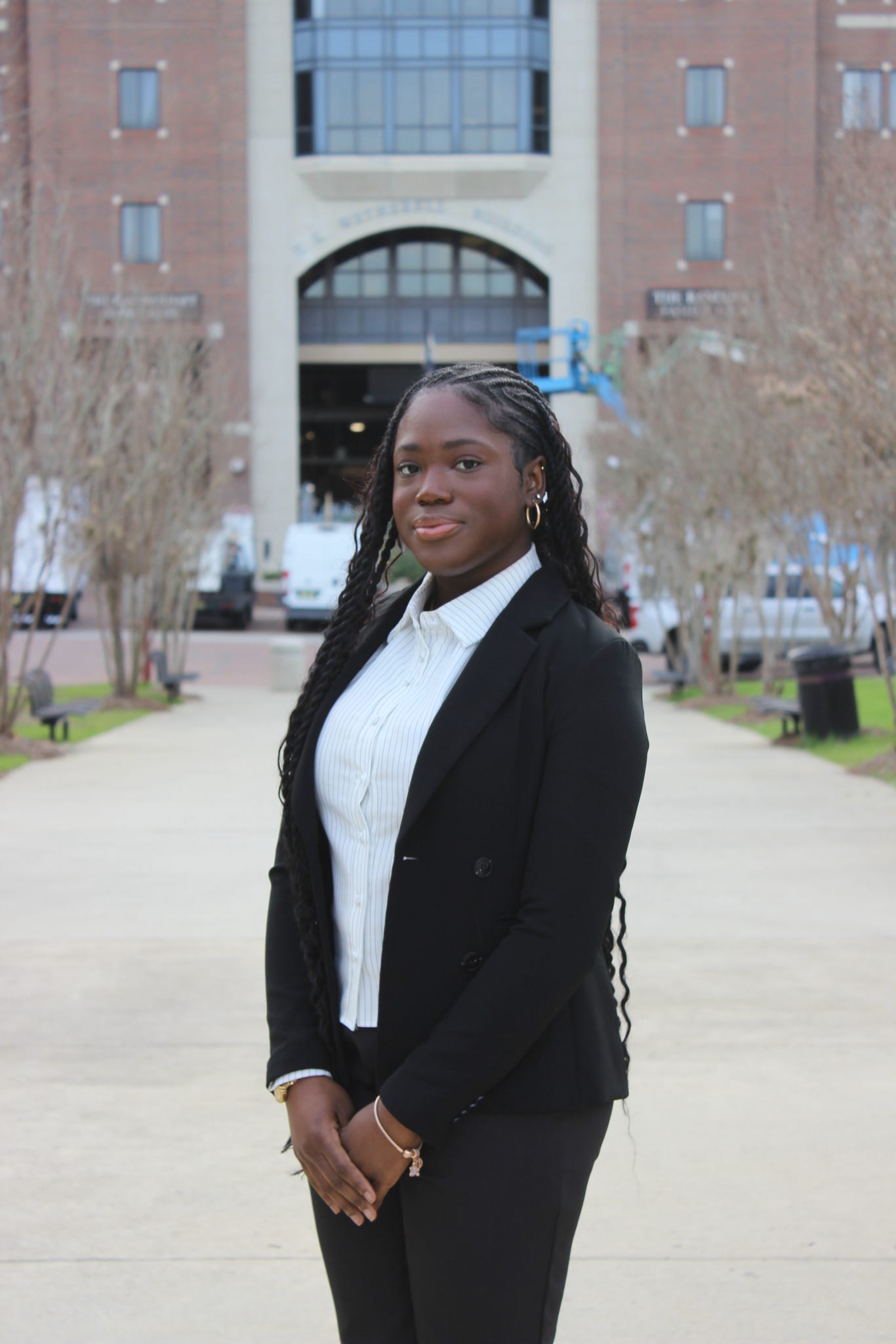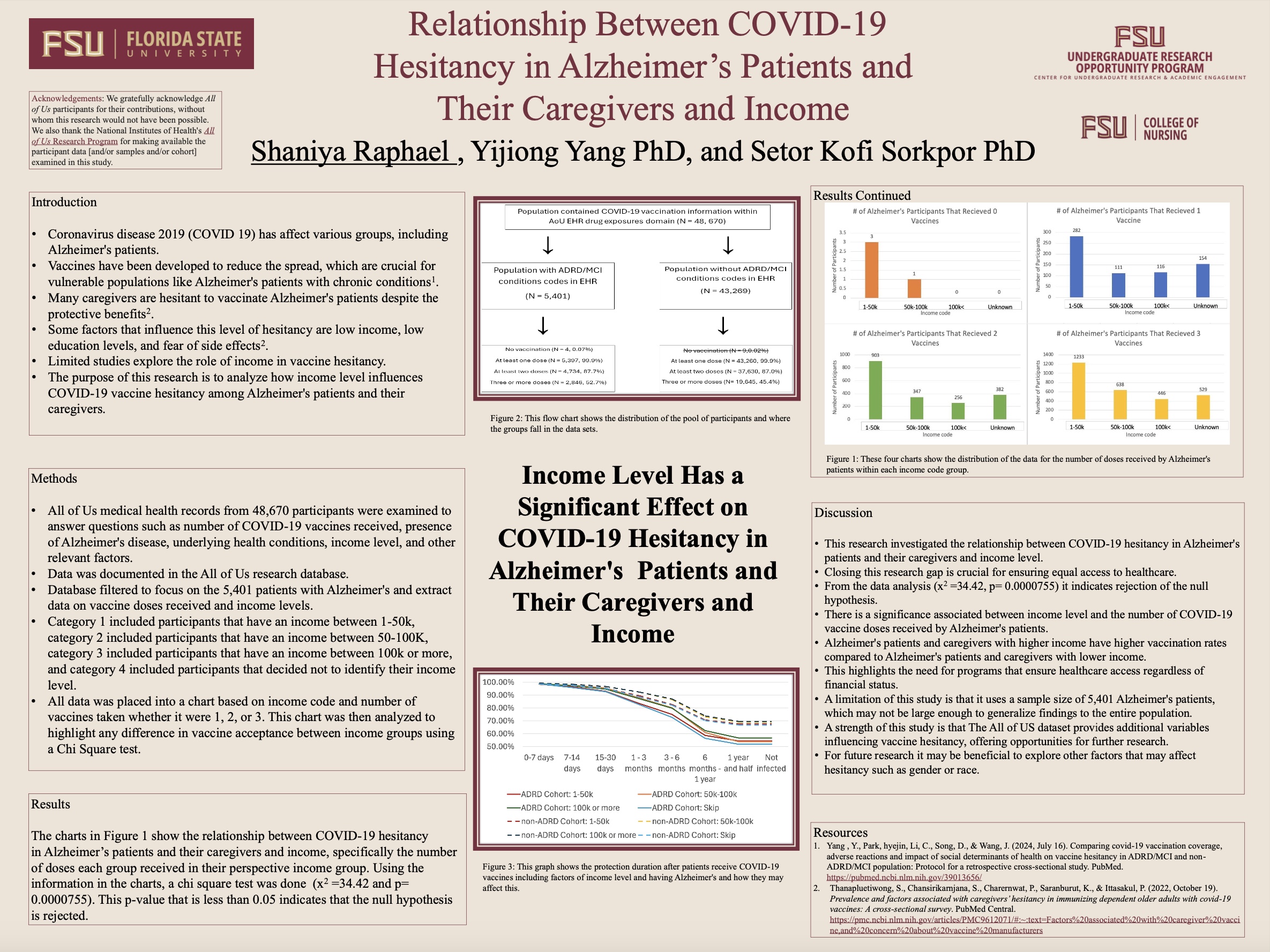Research Symposium
25th annual Undergraduate Research Symposium, April 1, 2025
Shaniya Raphael Poster Session 4: 3:00 pm - 4:00 pm/ Poster #179

BIO
I am a Biological Science major on the pre-med track at Florida State University. As a first-generation college student from Miami, FL, I am passionate about advancing in the field of medicine. My current interests include emergency medicine, dermatology, and neuroscience. Beyond academics, I actively engage in clinical and research experiences. I volunteer at the Bixler Emergency Center at Tallahassee Memorial Hospital, where I gain hands-on exposure to patient care. My research interests include public health topics such as COVID-19 vaccine hesitancy in Alzheimer’s patients. On campus, I am deeply involved in organizations that support minority women in medicine. As the Co-Director of Fundraising for the National Society of Black Women in Medicine, I take pride in raising funds to support and empower underrepresented women pursuing medical careers.
Relationship Between COVID-19 Vaccine Hesitancy in Alzheimer's Patients and Their Caregivers and Income
Authors: Shaniya Raphael, Yijiong YangStudent Major: Biological Science
Mentor: Yijiong Yang
Mentor's Department: Nursing Department Mentor's College: College of Nursing Co-Presenters:
Abstract
The spread of Coronavirus disease 2019, COVID-19, has affected various groups of people, including Alzheimer’s patients. To decrease the spread of this virus many vaccines have been produced. Although vaccines are put in place as protection, caregivers of Alzheimer’s patients express hesitancy in having patients receive COVID-19 vaccines. Many factors influence the percent of hesitancy, such as income. The purpose of this study was to analyze how income level influences COVID-19 vaccine hesitancy among Alzheimer’s patients and their caregivers. Medical house records were checked from a population of 48,670 participants. These records were used to answer how many doses of the COVID-19 vaccine they received, whether or not they have Alzheimer’s, and their income. After the data was documented in the All of Us research database, raw data specific to this research question was filtered out, focusing on the 5,401 patients that have Alzheimer’s. The results showed that 4 participants received 0 doses, 663 participants received 1 dose, 1888
participants received 2 doses, and 2846 participants received 3 doses, while falling within different income ranges. Based on the data spread, some differences can be seen between the different income groups within Alzheimer’s patients. These differences and results can be used to identify what resources need to be provided to lower income Alzheimer’s patients to ensure equal opportunity to healthcare patients.
Keywords: COVID-19, Alzheimer's, Hesitancy, Income


